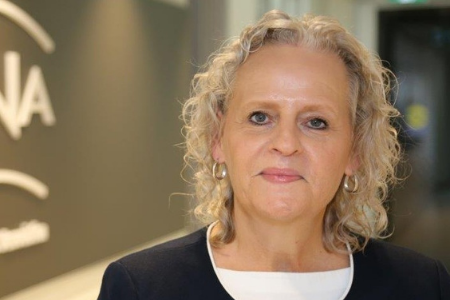Many nurses ‘feeling exhausted, burned out and not well-respected’

As part of Nursing Week, which recognizes the dedication and contributions of all nursing professionals, the Healthcare of Ontario Pension Plan (HOOPP) recently produced a short video thanking healthcare workers for their “bravery.”
“On behalf of all HOOPP employees, I want to thank our members who have been and continue to be on the front lines of this devastating pandemic,” says Jeff Wendling, president and CEO of HOOPP. “Your extraordinary efforts are seen and felt every day and are greatly appreciated. We are proud to be able to serve you.”
Despite the well wishes, Ontario nurses are having difficulties coping with the ongoing effects of the COVID-19 pandemic and many are feeling undervalued, according to Vicki McKenna, president of the Ontario Nurses’ Association (ONA).
“The nurses and healthcare professionals that we represent are really, really feeling very exhausted. In many cases, feeling burned out and not well-respected and that’s not from the public, that’s from employers and from government,” she says.
“They’ve been at the front lines of this for the 15 months of COVID-19… I’m worried about them and I’m worried about our future.”
The union regularly conducts surveys on how nurses are feeling career-wise and some disturbing trends are emerging that are being exacerbated by the pandemic, according to McKenna.
“Nurses and healthcare professionals tell me ‘We’ll get us to the end of this but I don’t know how much longer I’m going to be able to do this work,’ and we’ve had some that left during the pandemic,” she says.
“I really am alarmed because some of them are thinking career change now. They don’t feel that they can continue for 10 to 15 years and they’re looking at exiting.”
Nurses feeling blindsided by system
Many nurses are feeling blindsided by those who run the system, says McKenna.
“It’s the government policies and legislation and employers that just totally disregard them in their profession. There’s Bill 124, that wage suppression bill that almost all of our almost 80,000 in the province fall under that, and they’ve not had real wage gains over inflation for almost a decade.”

Vicki McKenna
ONA is currently bargaining with the government on a new contract but with Bill 124 mandating no more than one per cent, “it makes it impossible for us to bargain,” she says. “This wage restraint, it’s almost like there’s a slap in the face.”
Governments have acknowledged the staffing shortage issue, according to McKenna but so far it’s not enough to stem an upcoming problem.
“We’re looking at thousands of nurses [where] we are short.”
While the provincial government has promised to deliver more beds to the system, it won’t matter if they don’t hire more nurses, she says.
“That’s fine that we’re trying to rebuild but not if you don’t have the staff to staff those beds. That’s what’s missing in Ontario.”
What’s also needed is the knowledge gained from past outbreaks, says McKenna.
“We learned a lot of lessons through SARS and a lot of through Ebola and H1N1 and it doesn’t seem that those lessons stuck. We can’t forget our past. We can’t just dust off our plans when we get through something serious with COVID-19,” she says.
“There needs to be always a plan in place and those lessons that we learned, carried forward and not just put on a piece of paper and put it on the shelf.”
Drug abuse concerns are manifesting during the pandemic, warns the Centre for Addiction and Mental Health (CAMH) while Ontario is hoping to set up more employer-operated vaccination centres.




